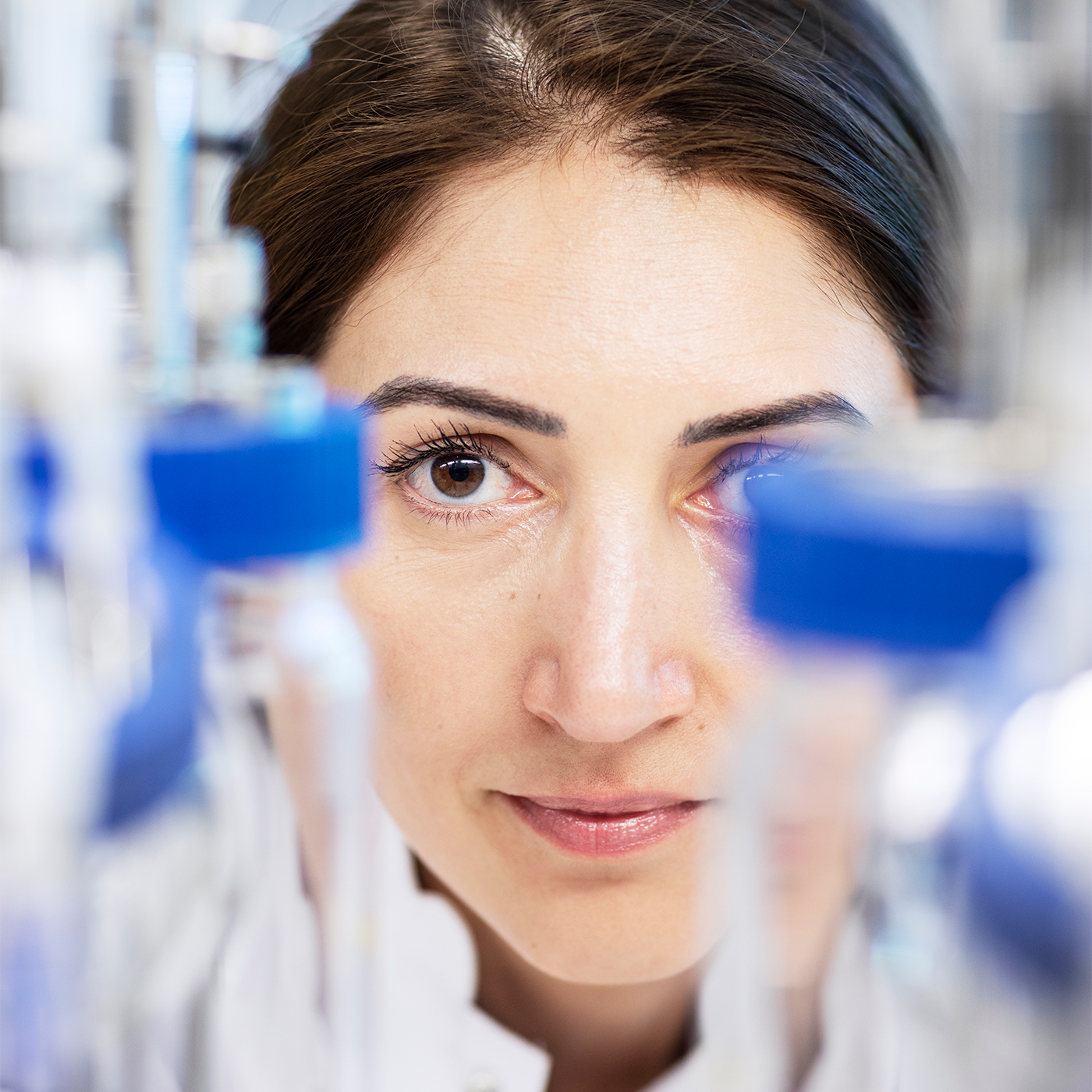New professor sees plenty of opportunities for women to power the green transition
Selin Kara is a new professor at the Department of Biological and Chemical Engineering at Aarhus University, where her research aims at using natural processes as a substitute for one of the world's most polluting industries. She wants to see more women in engineering and other STEM programmes, but there is a lack of role models, she says.

Biocatalysis is a research area in huge growth. Basically, the technology aims to produce green, sustainable and biologically degradable chemical substances by copying natural enzymatic processes and reactions.
By looking at nature's way of doing things, researchers hope to develop production methods that, via extremely productive biological processes, provide sustainable alternatives to modern chemical products in a process that generates no waste, that does not require fossil raw materials, and that is completely climate neutral.
Ground-breaking perspectives for a global super polluter, the chemical industry, which is expected to double in size by 2030.
One of the world's leading researchers in the area is Selin Kara, who has been appointed as full professor and head of section at the Department of Biological and Chemical Engineering at Aarhus University from February 2021:
"Fundamentally we’re a long way behind nature in terms of atom efficiency and sustainable chemical production. We’re trying to change this by combining biotechnology, organic synthesis, and process engineering to design and develop highly efficient enzymatic systems and make them attractive alternatives for the chemical industry. By doing this, we can establish a production chain that’s as sustainable and as efficient as possible at technical scales," she says.
Selin Kara was born and raised in Turkey and studied her BSc. studies at Middle East Technical University, METU – a university where almost half of all engineering students are women. She went to the Hamburg University of Technology, TUHH, to take her Master's degree in Biotechnology, and since then she has always wondered why so relatively few women in Western Europe take a STEM education.
"At METU, when I had studied my BSc. programs, 40-50% of our professors were women, and this is indeed quite normal for Middle Eastern countries. In the three Western European countries I’ve done research in over the past 15 years, the proportion is unfortunately quite different," she says, pointing out that the proportion of female professors in technical sciences in Denmark is just 8%.
On average, one in five professors in Denmark is a woman.
"It may sound like a cliché, but I simply think we need more female role models and mentors who can inspire young women in their career choices already at very early stages. And we have to put an end to the idea of gender-specific jobs. An ability to be good at a specific occupation is not encoded in our DNA – it is purely about inspiration and interest," she says.
Selin Kara's own interest in technical science subjects goes back to when she was at school. She liked mathematics and chemistry, and she elected to study Chemical Engineering and Food Engineering, two BSc. programmes (double degree) in parallel. After her Master's degree in Hamburg, she decided to apply for a PhD in Bioprocessing Technology. After this, she went on to conduct research at TU Delft in the Netherlands, TU Dresden and TUHH in Germany, before being appointed as an associate professor at the former Department of Engineering at Aarhus University in 2018.
Throughout her career, Selin Kara highlights curiosity as one of her most important characteristics. Curiosity about how, by means of interdisciplinary knowledge and creative technological quantum leaps, we can solve some of the major problems, humanity is struggling with today.
She is convinced that we can find the solution to many of these issues by investigating, understanding and streamlining the solutions that nature herself has found over billions of years.
“Today, the chemical industry uses traditional chemical catalysts as standard for the manufacture of the vast majority of chemicals. This gives rise to serious environmental concerns due to the large quantities of toxic waste generated and their high energy demand. Bottom line is, that our current way of producing chemicals is unacceptable to achieve the toxic-free environment aimed at by the EU Chemicals Strategy for Sustainability at short-medium term and the climate neutrality ambitioned by the EU Green Deal at long-term," she says.
Professor Selin Kara is currently head of the Biocatalysis & Bioprocessing research group and she is responsible for the department's section for Industrial Biotechnology. Her research group participates in a number of international research and development projects, and she manages the INTERfaces project, which is being funded by approx. DKK 28 million from the EU research and innovation programme, Horizon 2020, and which involves a total of 23 partners from high-tech industry and the world of research.
